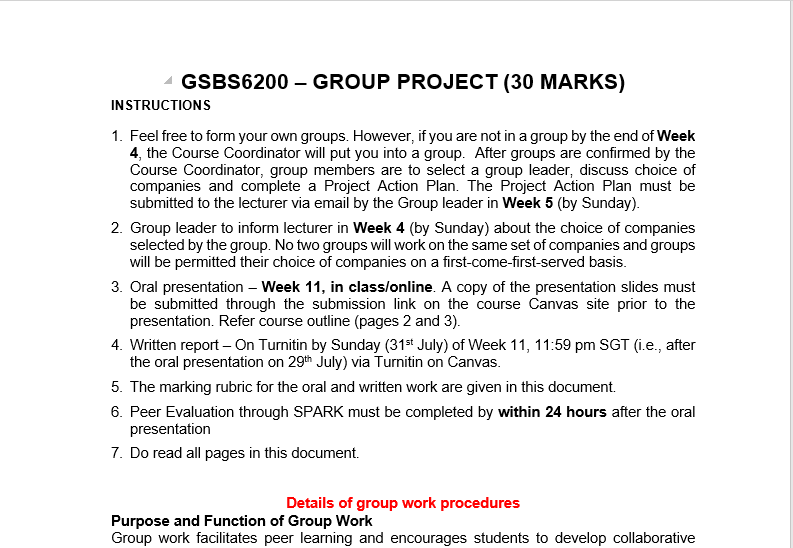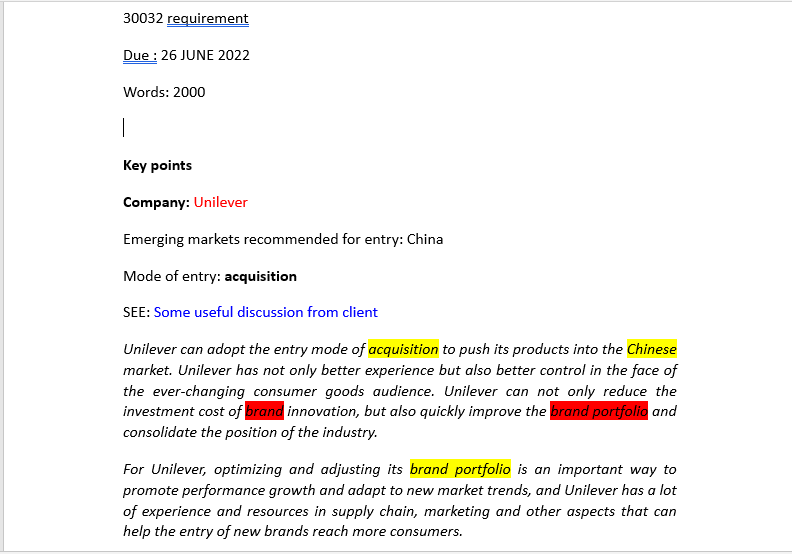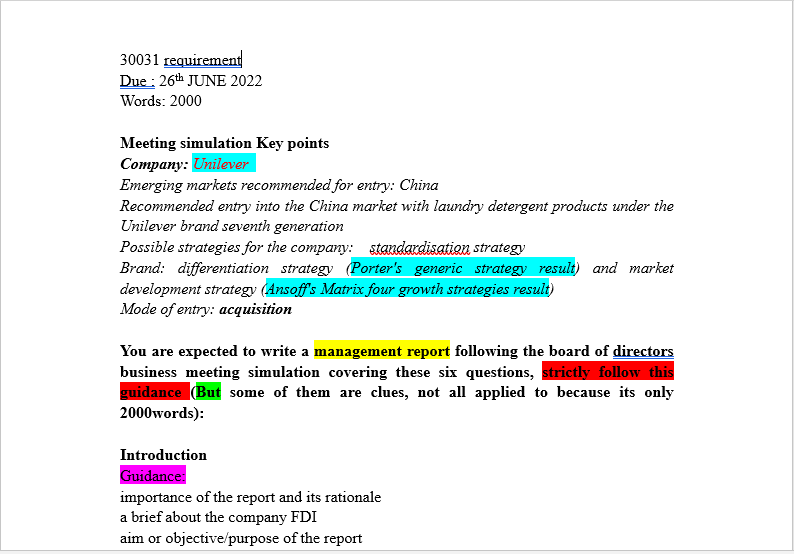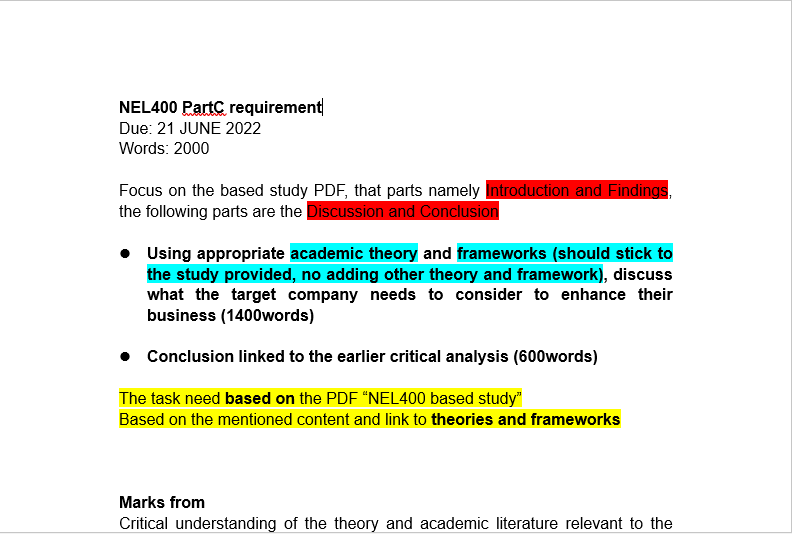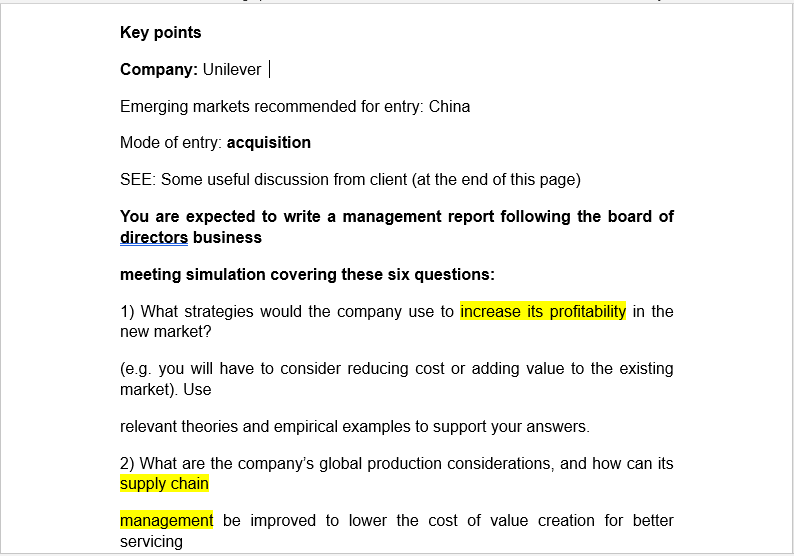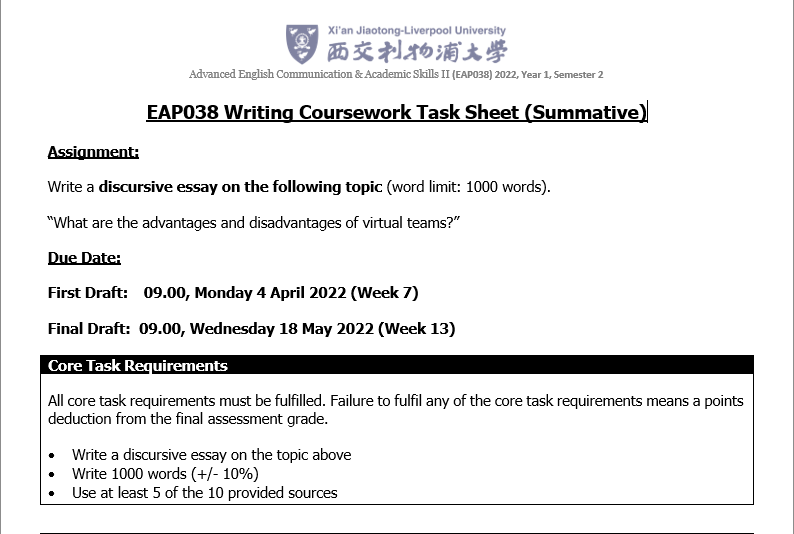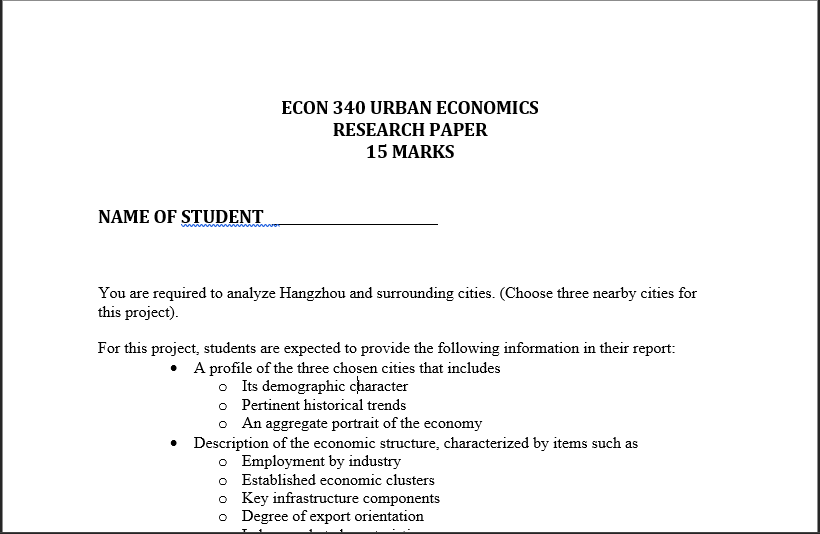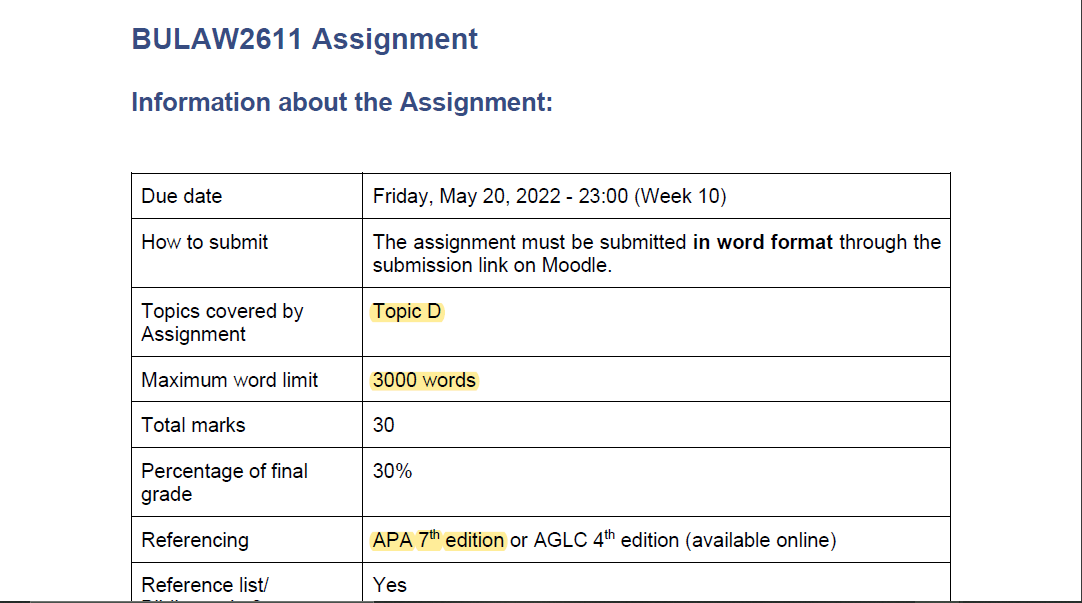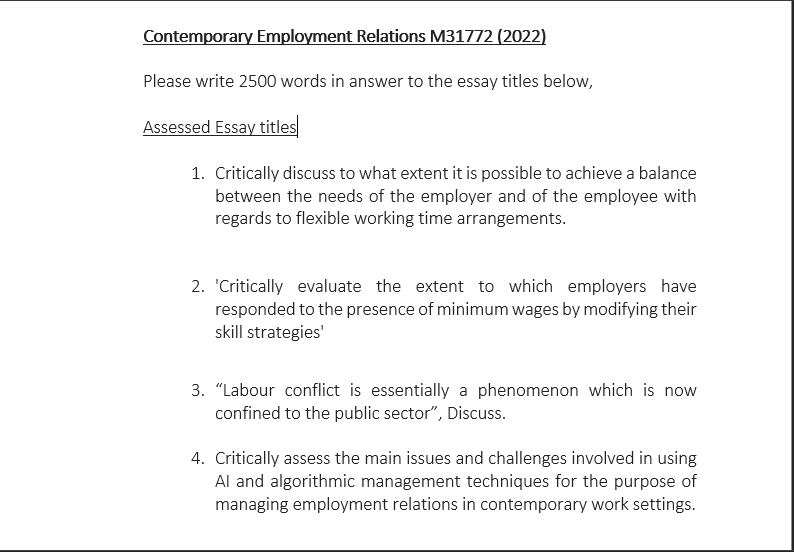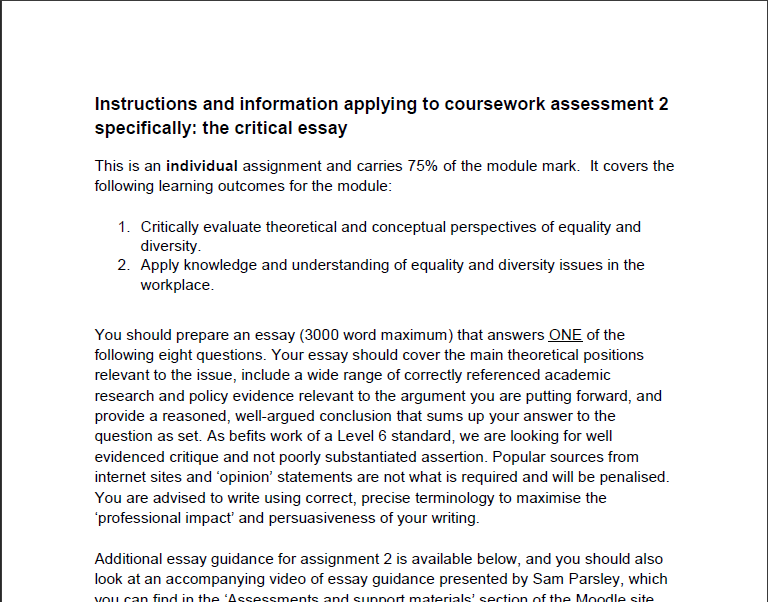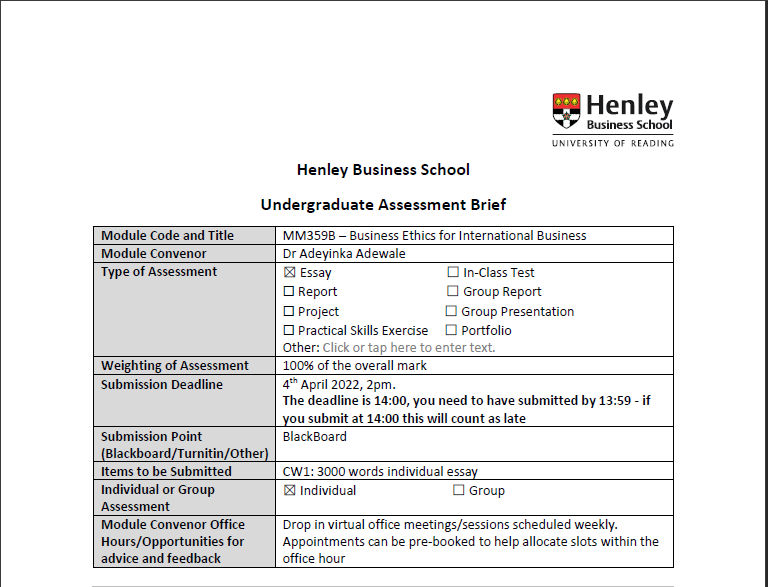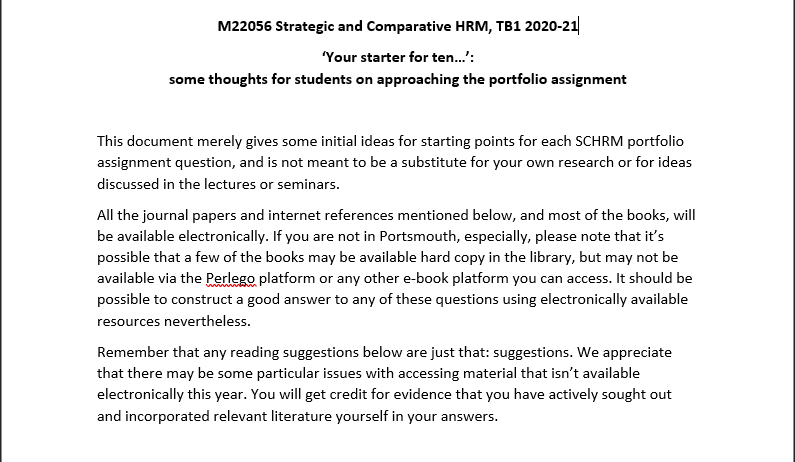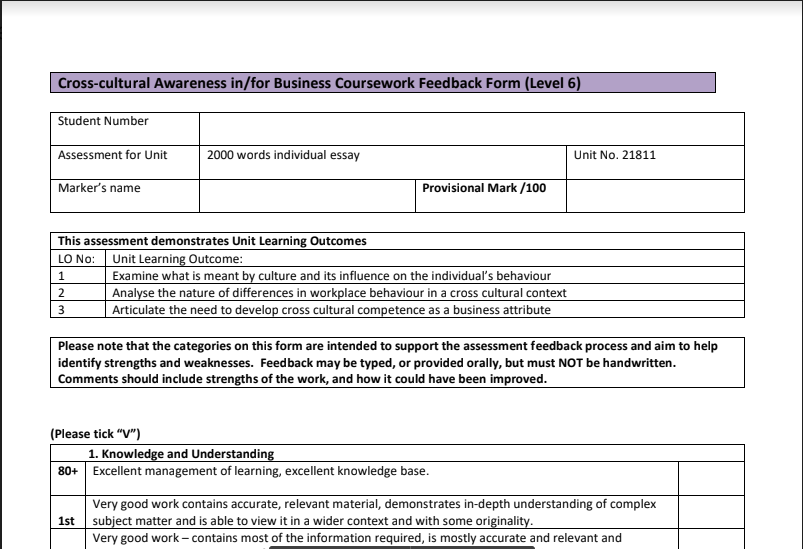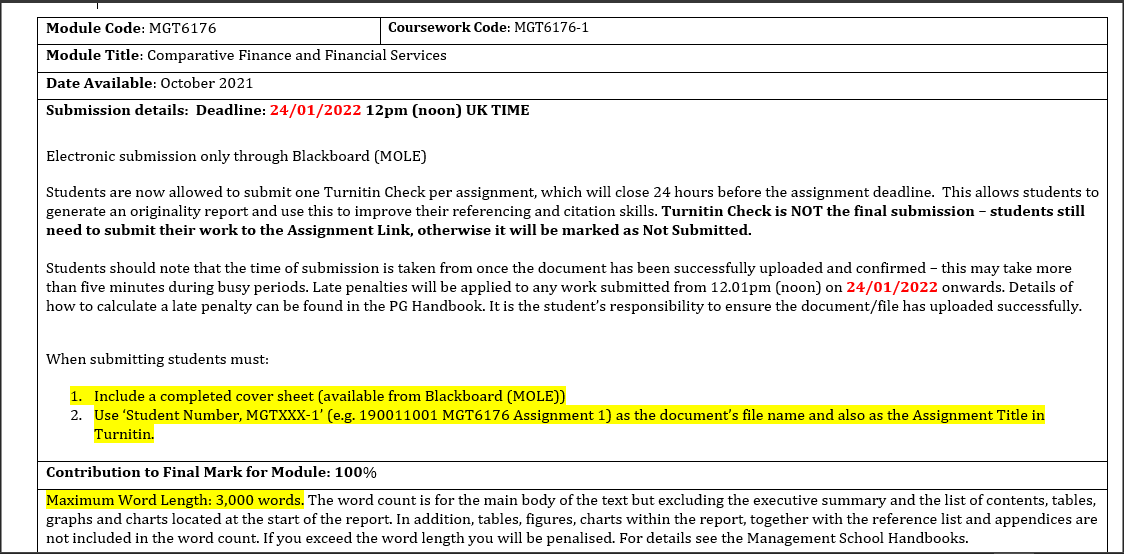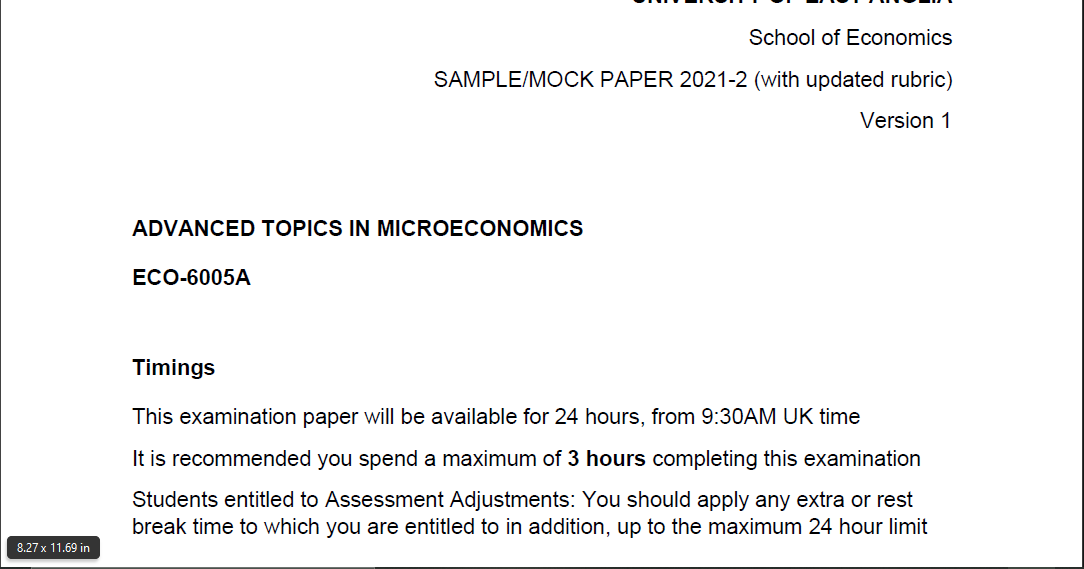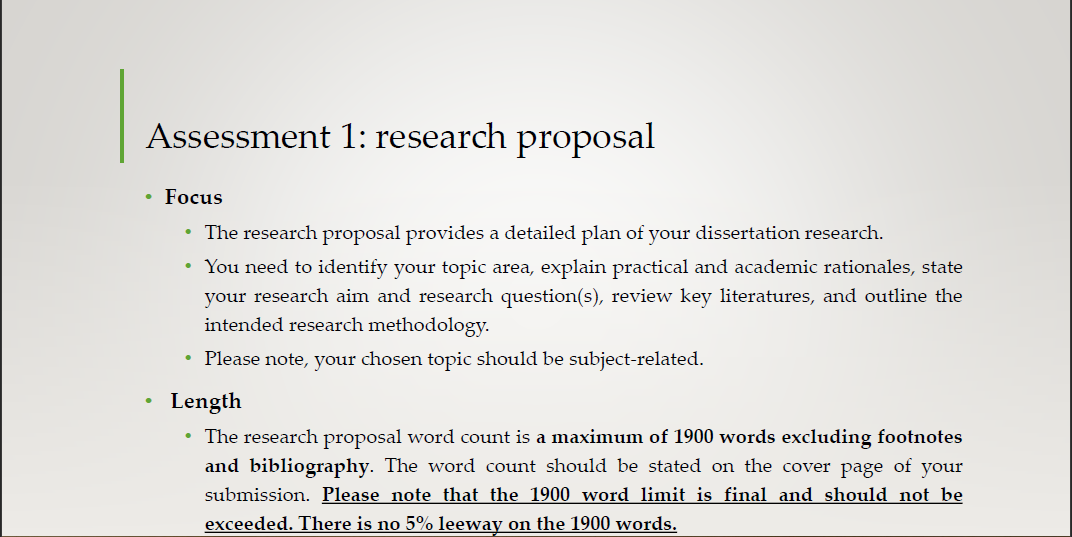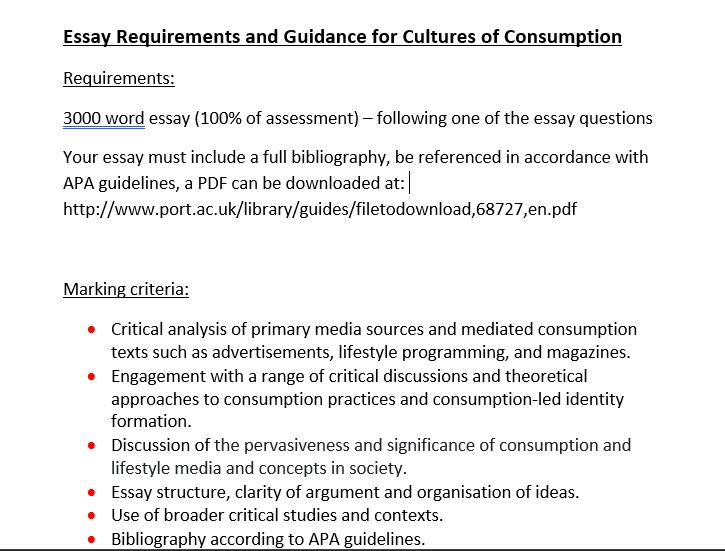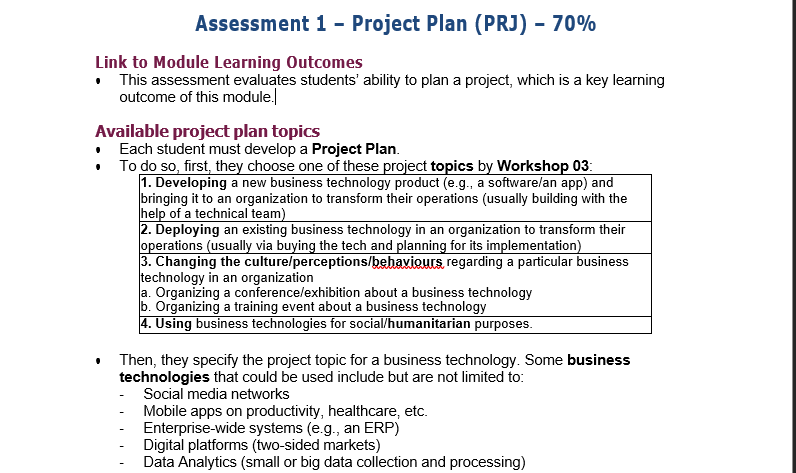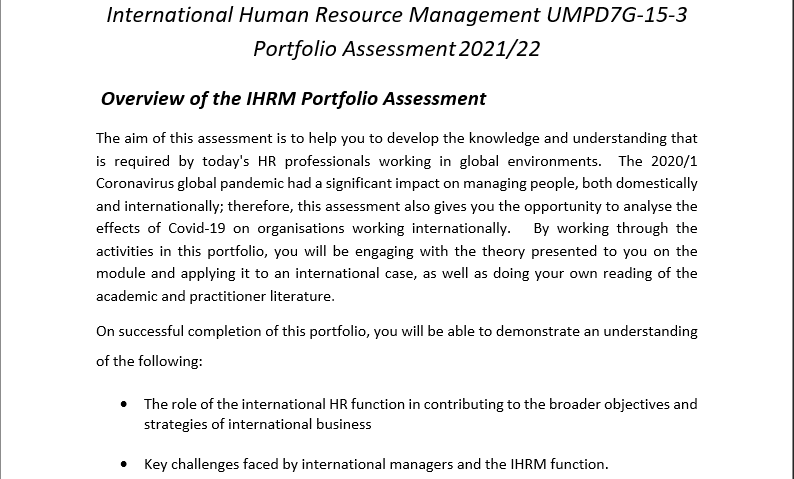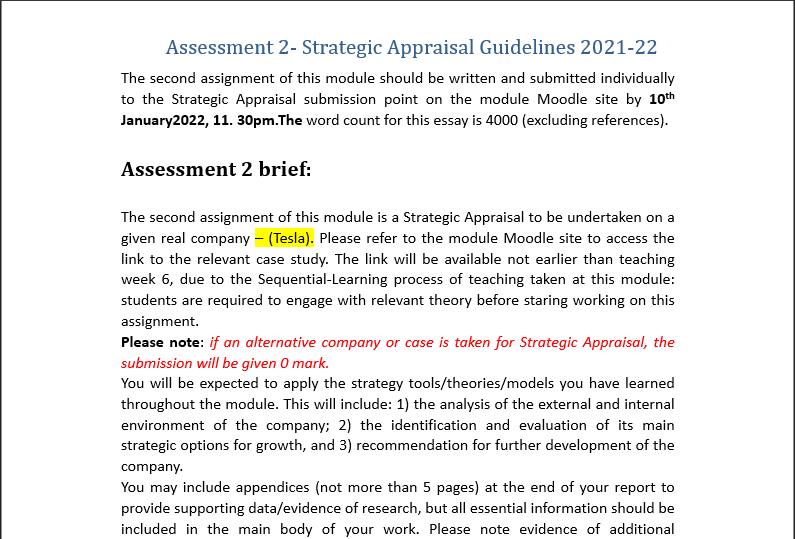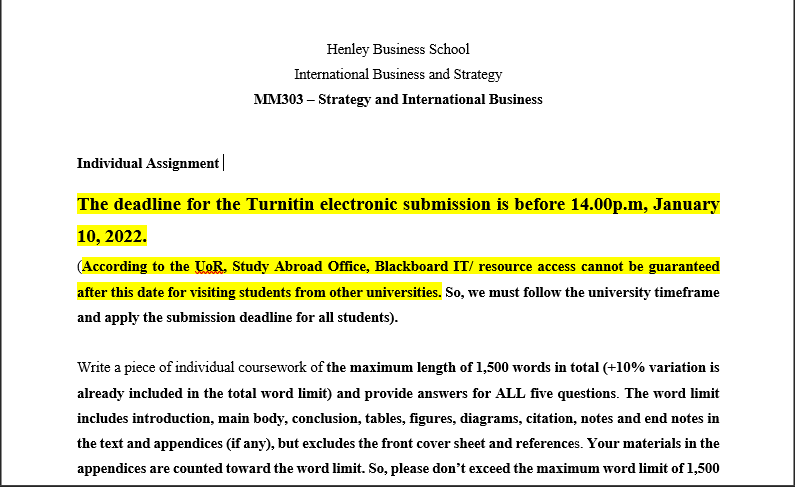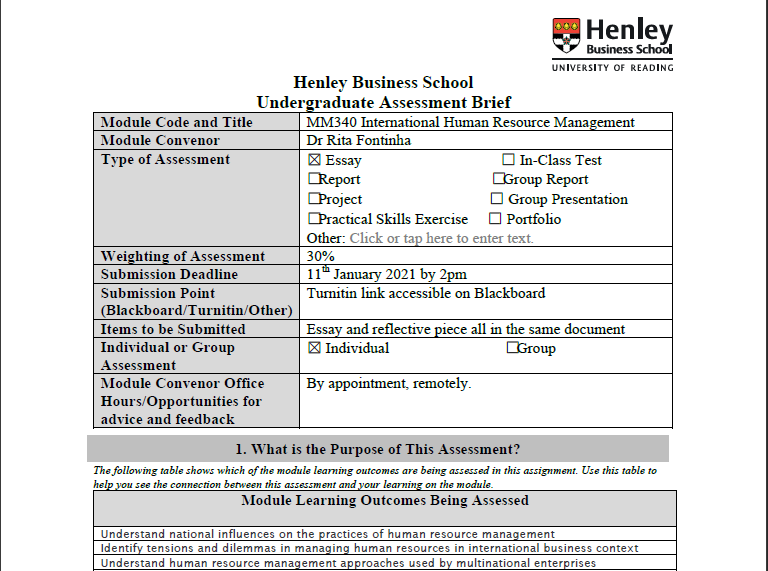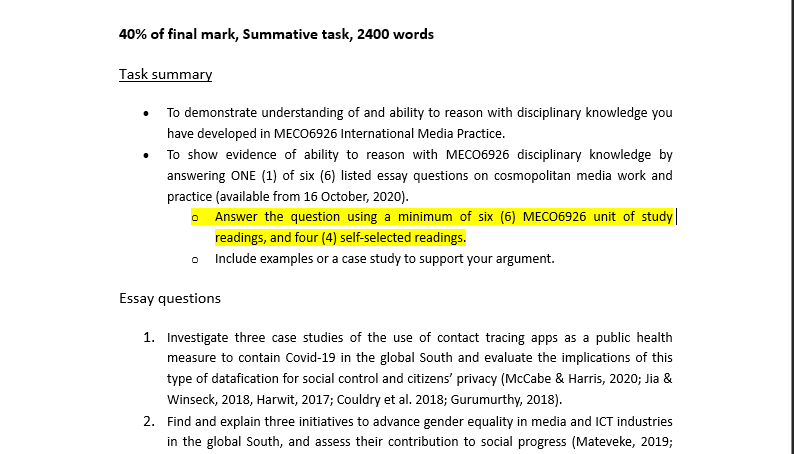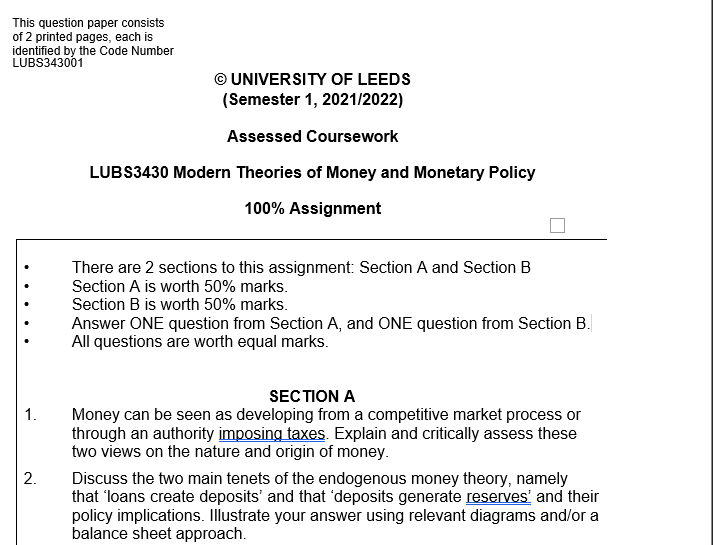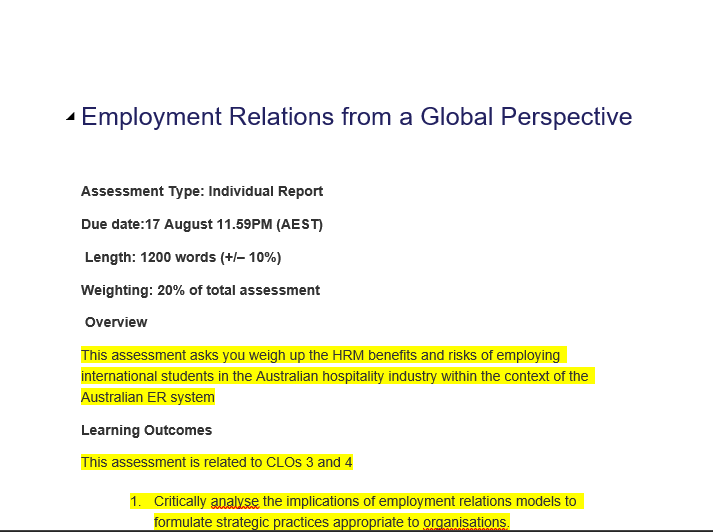UNIVERSITY OF EAST ANGLIA
Delayed Assessment / Reassessment by Coursework 2020-21
Module Title: EDUCATIONAL POLICY AND PRACTICE FOR DEVELOPMENT
Module Code / MAB: DEV-7011B 001
Module Organiser: Catherine Jere
Delayed Assessment / Reassessment Task: Policy Brief (2,400 words)
Task:
The student is asked to submit a 2400 word document, written in accessible language, which reviews critically a current educational challenge linked to one of the SDG 4 targets, analyses and presents evidence of what works, and makes recommendations for policy and/or practice.
For reassessment, the student will choose a SDG4 target and topic different from the one submitted previously.
The policy brief will identify a target audience (e.g. education ministry, national policymakers and/or other key decision-makers). The policy brief will be designed to influence the policy-making and practice of the intended audience.
Work is marked according to the UEA Senate Scale criteria and feedback provided using the DEV Feedback Form.
Word Length: 2400
Any additional Documents/References?
Further details of the requirements and marking of the policy brief are available on the DEV7011B Blackboard site, under Assessment Guidance.
Submission Details
The deadline for submission for all provisional progression / delayed assessment / reassessment coursework is 15:00 on Monday 16th August 2021.
The assignment will be submitted electronically via Blackboard; there will not be an option to submit via e:Vision, email or in hard copy. Even late assignments, or those that have extensions, should be submitted electronically through Blackboard rather than in paper/email format.
Work received after 15:00 on the specified deadline day will incur a late penalty unless there is an approved extension. Students are advised not to leave it to the last few minutes before 15:00 to send work, just in case they encounter any upload problems.
How will you know where to submit your work?
If you are submitting a reassessment, you must go to the Blackboard site for your module where you will see an option in the side menu for reassessment submission. Follow this link to view your submission point. You
must make sure you upload your work to the correct reassessment submission point. Reassessment submission points are indicated with an R (e.g., R001).
If you are submitting a delayed assessment, you must go to the Blackboard site for your module and submit your work to the submission point where you would have submitted your original summative. If you have already made a previous submission for this module, it is especially important that you leave enough time to contact the LTS (Learning and Teaching Service) Hub Enquiries Team to ask for your submission point to be reset before you try to upload your work.
Detailed instructions on how to submit work to Blackboard can be found on My.UEA here.
Contact information for the LTS Hub Enquiries Team can be found on My.UEA here.
University Policy on Plagiarism and Collusion
It is important that all students familiarise themselves with the rules and regulations regarding plagiarism and collusion. Understanding these rules will help you to avoid plagiarism and to maintain the quality of your academic work.
The current rules and regulations along with information and support on how to avoid plagiarism can be found here.
Individual study skills support and advice on referencing is also provided by the Learning Enhancement Service in Student Support Services.
You may be requested to provide a digital copy of your coursework for use with plagiarism detection software. Instances where plagiarism is suspected will be investigated. Students who are found to have plagiarised will be penalised.
Plagiarism and collusion offences are taken very seriously by the university and disciplinary consequences may extend to failing your degree, suspension, and expulsion.
Coursework Deadlines
All delayed assessment / reassessment coursework must be submitted by 15:00 on Monday 16th August 2021. Failure to submit on time without an approved extension will result in a penalty for late submission.
Please note that the deadline represents the latest time that a piece of work can be submitted, and not a target. You are advised to plan ahead and submit work well in advance of the deadline. This will help to ensure that any last-minute delays do not result in late submission.
Extensions to Coursework Deadlines
In exceptional circumstances, you may be entitled to request an extension to a deadline for the submission of work required for assessment. Requests for coursework extensions should be submitted on e:Vision, prior to the deadline and appropriate supporting evidence emailed to your LTS Hub.
Extension requests can be submitted on the following grounds:
• Medical (subject to a doctor’s note)
• Serious personal issues (subject to supporting evidence)
Extension requests cannot be considered for the following:
• Poor time management
• Transport or parking delays
• IT problems (unless evidence can be provided from an IT technician)
• Medical or personal circumstances that are not accompanied by supporting evidence.
You should plan your work so that minor delays do not prevent submission on time. In all cases, you should ensure that you make regular backup copies of all coursework in progress.
Where extenuating circumstances prevented you from applying for an extension in advance of the deadline, work submitted after the deadline should be accompanied by an Extenuating Circumstances request on e:Vision. Allowance will be given for acceptable extenuating circumstances and in such cases penalties for late submission will not be applied. Information on extenuating circumstances can be found on My.UEA here.
Extension requests will be considered by the LTS Manager in those instances where acceptable extenuating circumstances exist, and the request is submitted before the deadline. The designated member of academic staff in the school will consider all other requests.
Penalties for Late Submission
If you submit coursework after the published deadline, without an approved extension, the following penalties will apply:
Work submitted.
Marks deducted.
After 15:00 on the due date and before 15:00 on the day following the due date. (Up to 24 hours)
10 marks
After 15:00 on the second day after the due date and before 15:00 on the third day after the due date. (Up to 72 hrs)
20 marks
After 15:00 on the third day after the due date and before 15:00 on the 20th day after the due date. (Over 72 hrs)
All the marks the work merits if submitted on time (i.e., no marks awarded.)
After 20 working days
Work will not be marked and a mark of zero will be entered.
Late submission of pass/fail marked work for assessment in the absence of acceptable extenuating circumstances will be awarded a fail mark.
Saturdays & Sundays will not be taken into account for the purposes of calculating marks deducted.
Answer
Eliminate All Discrimination in Education in Latin America and the Caribbean Region
Executive Summary
With high discrimination rates in schools in Latin America and the Caribbean region, it is critical to examine the SDG 4 target regarding eliminating all discrimination in education. So far, the target has enlightened governments and policymakers in the Caribbean and Latin America that discrimination exists in their education systems. However, implementing the SDG 4 target to eliminate the discussion is problematic. The current approach that nations use to achieve this target needs changes because it is shallow and unfocused, more of a wish than a goal, assumes underlying inequalities and ignores local contexts. Changing the current approach would also help national policymakers in these nations to address the root causes of the problems, including unreliable funding for free education, ethnic and systemic discrimination, and connectivity issues in rural areas. Other root causes are poverty, barriers to education access specific to marginalized persons, instability of some regions, and teacher quality and capacity. The recommended actions to achieve this objective and eliminate all discrimination in education include implementing anti-discrimination programs and laws, allocating enough funds for free education, and establishing a commission to oversee the SDG 4 target's realization.
Context and Importance of the Problem
Eliminating all discrimination in education is one of the conspicuous targets of SDG4. The prevalence of discrimination in education in Latin American and Caribbean countries necessitates its analysis under the SDG4 target to eliminate all bias in education. For example, GEM Report (2021) states the probability of Afro-descendants in Peru finishing secondary education is 14% lower than non-Afro-descendants' and 24% lower in Uruguay (para 2). This scenario is replicated in indigenous peoples whose school attendance, educational attainments, and literacy rates fall below the general population's (GEM Report, 2021, para 3). For example, only 21% of indigenous males aged 20-24 had completed secondary school in 2016 compared to 61% of non-indigenous peers (para 5). Although some work has been accomplished, including laying frameworks for free education, promoting multiculturalism and divert, and implementing anti-discrimination laws in education, more effort is needed to achieve this target in Latin America and the Caribbean region. SDG4 target of eliminating all discrimination in education is problematic because it is shallow and unfocused, more of a wish than a goal assumes underlying inequalities, and ignores local contexts. Although this target appears exhaustive, it is not. Instead, it has many loopholes reducing the chances of achieving it. This target's analysis allows the region's national policymakers to identify current and urgent problems, considering its inability to address various gaps. Even though this target established a fundamental policy regarding eliminating all discrimination in education, it is associated with many problems besides the reinforcing root causes. Data from UNESCO (2020) indicates that 12 million children cannot access education in the Caribbean and Latin America, with poverty being the major hindrance (para 4). Further, education systems are failing to adapt to students' needs as diversity is not reflected in education systems, creating discrimination (UNESCO, 2020, para 9). These statistics are worrying and enlighten the region's national policymakers that much work needs to be done before 2030 if the SDG4 target on eliminating all discrimination in education is to be eliminated. The national policymakers, the audience for this report should realize that fulfilling this target is associated with various problems and may never be achieved without addressing them. Consequently, the problem statement regarding the SDG4 target on eliminating all discrimination in education realization is that it is shallow and broad, more of a wish than a goal, assumes underlying inequalities, and ignores local contexts, making regions like the Caribbean and Latin America experience high discrimination in education. This problem is attributable to various root causes that national policymakers must solve to actualize this target.
The root causes include unreliable funding for free education, ethnic and systemic discrimination, connectivity issues in rural areas, poverty, barriers to education access specific to marginalized persons, instability of some regions, and teacher quality and capacity. Unreliable funding is a root cause because, despite the school administrations' willingness to enhance inclusion, equity and promote gender equality in learning institutions, discrimination persists since some children cannot afford tuition expenses. According to the Independent Evaluation Group (2017), ethnic and religious minorities are excluded in the national economy and experience discrimination in the education sector (p. 110). Moreover, discrimination against women in the labor market reduces their interest in education because they are unlikely to secure employment opportunities even after studying (Independent Evaluation Group, 2017, p. 109). This illustration affirms that discrimination in education persists because of barriers to marginalized persons, reinforcing the proposition that the SDG4 target on eliminating all discrimination in education is shallow and broad, more of a wish than a goal, assumes underlying inequalities, and ignores local contexts. Ethnic or racial and systemic discrimination is also a root cause for problems impacting the SDG4 target. These aspects combine to enhance school segregation with ethnicity influencing this phenomenon than socio-economic status (GEM Report, 2021, para 7). Teacher quality and capacity also contribute to discrimination because incompetent teachers are unknowledgeable about eliminating discrimination in education. Policy implications of this problem include the need to create reliable funding to achieve free education and develop solutions to remove barriers specific to marginalized persons. It also entails ending systemic and ethnic discrimination, improving teacher quality and capacity, and partnering with international bodies to enhance education standards in fragile contexts. These measures will adjust the target by making it more focused and in-depth, convert it to action-based instead of retaining it as a wishful plan, and tailor solutions to local contexts and their underlying inequalities. Critiquing the shortcomings of the current approaches helps illustrate why the SDG4 target of eliminating all discrimination is falling.
Critique of policy option(s)
The eliminate-all discrimination target in education aims to eliminate gender disparities in education and ensure equal access at all levels of education, especially by indigenous people, children with vulnerable conditions, and individuals with disabilities (SDG-Education 2030 Steering Committee Secretariat, n.d.). Therefore, this target has two main policy options: enhancing inclusion and equity and promoting gender equality. Regarding inclusion and equity, the target states that all people, regardless of their age, color, sex, origin, disabilities, language, ethnicity, or religious, political, and social opinion, have a right to inclusive, equitable quality education (SDG-Education 2030 Steering Committee Secretariat, n.d.). Additionally, vulnerable groups require targeted strategies, including persons with disabilities, ethnic minorities, low-income families, and indigenous people. On gender equality, this target states that boys, girls, men, and women should benefit from equal high-quality education (SDG-Education 2030 Steering Committee Secretariat, n.d.). Further, this target warrants special attention to young women and adolescent girls prone to early marriages and pregnancy, gender-based violence, and those in remote rural areas from low-income families. The target makes a broad comment on boys by stating that governments should take specific actions for those in a disadvantaged situation. Most importantly, the target specifies that policies to overcome gender inequality are more productive when combined with those advocating for good health, justice, and superior governance (SDG-Education 2030 Steering Committee Secretariat, n.d.). Latin American and Caribbean countries are failing despite striving to eliminate all discrimination in education. While these policy options sound well-thought-out and easily implementable, they are not. This scenario necessitates a discussion on why they are falling.
Order to get the full solution



